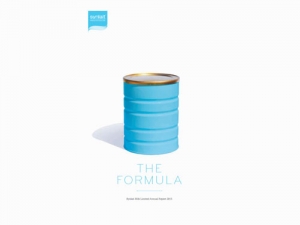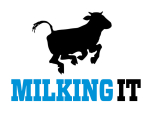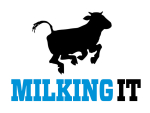The processor, 39% owned by Chinese dairy giant Bright Dairy, made an underlying net profit after tax (NPAT) of $12.2 million for the financial year ending July 31 2015, compared with $19.6 million last year.
Revenue for the period was $448.1 million compared to $600.5 million in FY14, largely due to decreases in dairy prices.
Synalit says the underlying NPAT, while within market guidance, was down on expectations due to lower than anticipated lactoferrin sales and Synlait's Board of Directors choosing to prioritise payments to milk suppliers in a period of a very low milk price.
"FY15 has been an extremely busy year. We've continued to develop our existing ingredients and bulk nutritionals business, as well as bringing lactoferrin to market and increasing production volumes of finished infant formula in retail-ready cans," says chairman Graeme Milne.
"At the same time, we've continued our investment in our nutritional capacity and capability with our $250 million growth initiatives programme nearing completion."
"All of this has been in a global operating environment where milk prices have fallen to unsustainably low levels and this is reflected in our FY15 revenue. Our suppliers are an important part of our business and we've prioritised paying them higher advances and final payments for their milk, relative to our earnings, in what has turned out to be the first of probably two very challenging years on farm."
Milne added there will be an initial focus in FY16 on commissioning Synlait's third large scale spray dryer and new quality testing laboratory in October, but that focus will shift towards developing nutritional and infant formula products with key customers to leverage the increased capability and capacity.
"Based on the expected increase in volumes from both dryer three and our blending and consumer packaging facility, profitability will be in advance of anything achieved to date," says Milne.
Managing director and chief executive officer John Penno says the strategy to make more from milk requires innovation both on farm and throughout the manufacturing process.
"We are poised for earnings growth through our value added strategy. We now have the customers, people, manufacturing capability and milk suppliers to deliver a significant increase in our overall volumes, particularly the volume of finished infant formula," says Penno.
"Once we complete our growth initiatives, we will have one of the largest and highest specification infant formula production sites globally with an integrated supply chain from source to our customers. This integration is valuable to consumers who want to know where their products come from and how they're made," says Penno.
Synlait paid its milk suppliers a total average milk price of $4.54/kgMS for the 2014 -15 dairy season. This price consists of a $4.48/kgMS base milk price and a $0.06/kgMS average payment for seasonal and value added premiums.
The forecast milk price for the 2015 -16 season has also been revised from $5.50 per kgMS to $5.00 per kgMS.
"Pricing has continued to be volatile and as always, we will continue to keep a close eye on the market and keep our suppliers updated," says Penno.
"Our milk supply is increasingly differentiated before it leaves the farm gate. The value added products we make are distinguished by the milk they are manufactured from. Special milk programmes like a2 Platinum® and Grass Fed are examples of this, as is certified Lead With Pride™ milk."
"Our suppliers receive a premium payment, on top of their base milk price, for milk that goes into value added products. More than half of our suppliers will attract a premium payment this season because of the value they're creating on their farm."

















